
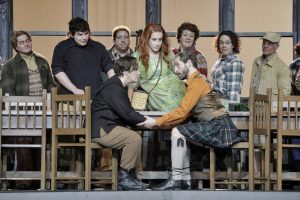 Somewhat recommended ** George Frideric Handel wrote some of the loveliest melodies for the human voice ever heard and which are regularly excerpted for concert performances. But the conventions of early eighteenth-century baroque operas are quite different from modern dramatic sensibilities, with the repetitive lyrics of their arias, requirement that plots advance through recitative, and most of all, the obligation to present intense emotions through ABA patterned music. The Lyric Opera’s new co-production of Ariodante, conducted by baroque master Harry Bicket, is an opportunity to experience a rarely heard musical triumph. But it needed a lot of help to be staged, and original director Richard Jones’s concept of borrowing from Henrik Ibsen’s naturalistic social issues dramas to present it in a somewhat verismo style has questionable results.
Somewhat recommended ** George Frideric Handel wrote some of the loveliest melodies for the human voice ever heard and which are regularly excerpted for concert performances. But the conventions of early eighteenth-century baroque operas are quite different from modern dramatic sensibilities, with the repetitive lyrics of their arias, requirement that plots advance through recitative, and most of all, the obligation to present intense emotions through ABA patterned music. The Lyric Opera’s new co-production of Ariodante, conducted by baroque master Harry Bicket, is an opportunity to experience a rarely heard musical triumph. But it needed a lot of help to be staged, and original director Richard Jones’s concept of borrowing from Henrik Ibsen’s naturalistic social issues dramas to present it in a somewhat verismo style has questionable results.
Handel’s source material was an adaptation of a section of Orlando Furioso that takes place in early medieval Scotland, but Jones has moved the story through time to a neo-Calvinist cult in the 1970s. Ginevra (Brenda Rae), the daughter of the leader, is in love with Ariodante (Alice Coote, replaced on opening night by Julie Miller due to illness), and they are about to marry. But the evil Polinesso (Iestyn Davies), the preacher in Jones’s imagining, covets Ginevra, and plots to sabotage their romance. He finds a willing accomplice in Ginevra’s maid, Dalinda (Heidi Stober), and pulls off a Much Ado About Nothing-style bed trick, causing Ginevra to be unjustly denounced so that he can faux-magnanimously rescue and claim her.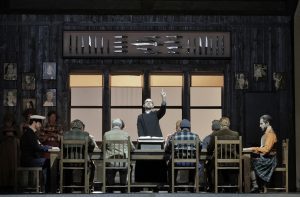
Although Coote’s illness is unfortunate, mezzo Miller stepped into the role ably. The role was originally written for a castrato, but a mezzo voice makes Ariodante sound more like a teenager, which is apparently the characterization Miller is going for. The early Act I aria Con l’ali di costanza is done with giddiness-inducing enthusiasm and astonishing ornament, matching the naïve joy of Rae’s first aria, Vezze, lusinghe. The centerpiece of the opera is Ariodante’s twelve-minute aria, Scherza infida, which he sings as a good-bye to love upon believing he has been betrayed. Bicket conducts it at an appropriately brooding tempo and Miller finds the subtlety in each shift in musical phrasing as Ariodante processes his first and worst heartbreak. Although the opera is four hours long with this production’s intermissions, every minute of this particular aria is earned and effective.
Rae makes a sympathetic heroine in her Lyric debut and dramatically delivers the aria Mi palpita il core as Ginevra senses and muses on her impending downfall, but the pacing immediately afterwards slackens. The performer with the juiciest role is countertenor Iestyn Davies, as the unabashedly odious Polinesso. The minister’s voice is entrancing, if not exactly seductive, and the night’s most delightful moment is his triumphant, trilling monologue about renouncing virtue, Se l’inganno. Davies is also as physically lithe as his voice and whether he’s making sweeping gestures from the pulpit or skulking around planting porn in Ginevra’s room, he’s always fascinating to watch. Stober is his junior partner in crime as the self-loathing Dalinda, whom she makes into a psychologically convincing character with a mournful soprano instrument. Kyle Ketelsen and Eric Ferring do fine work as the king and Ariodante’s younger brother, contributing bass-baritone and tenor ranges to a score that doesn’t provide much of a role for the chorus.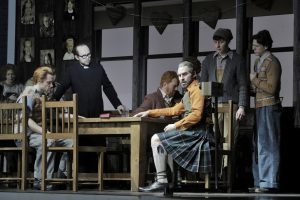
All in all, the music is the star and it’s a real treat, but the inherent psychological interiority of baroque opera is a rough fit with realistic staging. Jones found stage business for the actors during the early scenes but seemed to peter out during the long arias in the later ones. At one point he resorts to having Ariodante shoved through a door because the script demanded it and no in-character motivation for him to leave could be found And while the director’s reference to Ibsen leads me to believe that Polinesso’s costuming is meant to be reminiscent of the fearsome Brand or his prosaic reincarnations from Ghosts and Hedda Gabler, but his seriousness was undercut by making him look like Rossini’s comical Basilio, among other choices. The musical interludes Handel wrote for ballet dancers are now given over to a team of puppeteers directed by Kate Colebrook who provide amusing dumb shows. But the world of the play, with a basic set and a chorus that fades into the background, generally doesn’t feel fleshed out enough to support its dramatic stakes. It’s too bad; if the production artists were looking to the nineteenth-century Scandinavians for melancholy inspiration they might have been better served by the symbolist dramas, in which moments of intense emotion are intuitively linked together through the sort of stage magic opera excels at. Or, if they wanted to deconstruct a sentimental fantasy, they might have gone full Brechtian.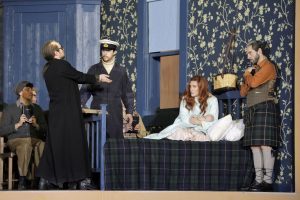
Ariodante will continue at the Lyric Opera House, 20 N Upper Wacker Drive, Chicago, thru March 17, with the following showtimes:
March 8: 7:00 pm
March 11: 7:00 pm
March 14: 7:00 pm
March 17: 2:00 pm
Running time is three hours and fifty-five minutes with two intermissions.
The Lyric offers parking deals with Poetry Garage at 201 W Madison St. if inquired about in advance. Tickets start at $39; to order, visit LyricOpera.org or call 321-827-5600.
To see what others are saying, visit www.theatreinchicago.com, go to Review Round-Up and click at “Ariodante.”
photos by Cory Weaver

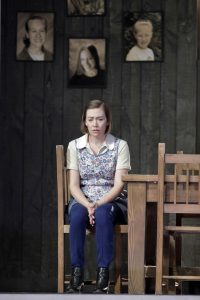

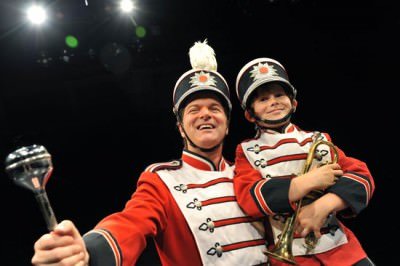

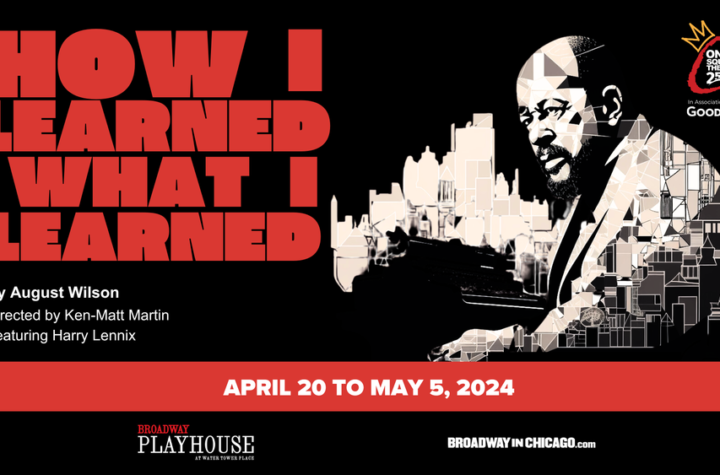

More Stories
“Joe Turner’s Come and Gone”
“How I Learned What I Learned” reviewed by Julia W. Rath
“How to Know the Wild Flowers: A Map” reviewed by Julia W. Rath